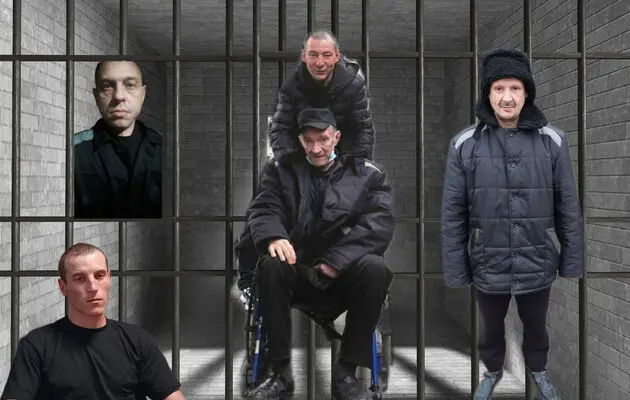As the Russian Federation continues to occupy Ukrainian territory, the correctional system in Ukraine is facing serious challenges. The situation with prisoners who remained in penal institutions in temporarily occupied regions has become one of the most acute problems for prisoners, their relatives and human rights defenders. For the state – not so much.
During the annexation of Crimea and the conflict in the east of Ukraine in 2014, about 15,000 prisoners were left without proper protection and assistance. The occupied territories still hold prisoners who express a desire to return closer to their relatives and continue to serve their sentences in the territory controlled by Ukraine.
During the full-scale invasion of 2022, the prisoners were again not evacuated in time, with about 3,000 people ending up in Russian occupation. In the fall of 2022, about 2,500 prisoners were deported to the territory of the Russian Federation.
Ukrainian citizens who are in the occupied territories or in Russian prisons are used as cheap labor (this includes sewing military fatigues, manufacturing defense structures, building new prisons, administrative buildings, houses for the occupiers and collaborators, cleaning places of deprivation of liberty, in which civilian prisoners are held and tortured, etc.), they are forced to obtain Russian passports and even be recruited into the ranks of the enemy army. Reports of torture and ill-treatment are becoming increasingly widespread, highlighting the tragic conditions in which prisoners are held.
The government of Ukraine left the prisoners of 2014 in danger, did not punish anyone, and did not draw conclusions from this experience. And during the new wave of occupation, it again failed to ensure the effective evacuation of prisoners under state care. Human rights organizations have become the main defenders of these people. In fact, prisoners serving their sentences independently searched and continue to search for ways to return to the territory controlled by Ukraine. Over the past two years, the non-governmental organization Protection of Prisoners of Ukraine has helped 240 Ukrainian citizens of this category return to the government-controlled territory. These people have experienced varying levels of suffering, and the state should at least grant such people the status of civilian prisoners. The state should be interested in the return of victims and witnesses of war crimes committed by the Russian Federation and its collaborators.
The Ukrainian government does not raise these issues at the international level. Only the Office of the Ombudsman of Ukraine, following our appeal, unsuccessfully tried to set things in motion, communicating with the International Committee of the Red Cross and the Ombudsman of the Russian Federation. But this effort was limited only to simplifying the return of those whose sentences is expiring.
The Ukrainian authorities do not adopt legislative changes to ease the plight of prisoners who remain hostages of the situation. In our opinion, Ukrainian prisoners should help the Armed Forces of Ukraine instead of working for enemy troops. They should be taken to Ukrainian prisons at least for these reasons, not to mention the basic violations of human rights. And also, as an option, it is necessary to pass an amnesty for prisoners held by the Russian Federation, or a law according to which sentence would be reduced by counting a day spent in occupation or deportation as two days or even three. The indifference of the authorities in solving these issues indicates a serious vacuum in the state policy regarding the protection of the rights of this least protected category of victims of the armed conflict.
Human rights organizations play a key role in protecting the rights of prisoners who are sent to Ukrainian-controlled territory after serving their sentences. They provide escort, legal support, documentation of violations and promotion of the integration of these persons back into society. Many have lost relatives, their documents, their houses have been destroyed, and social ties have been severed. People need clothing, housing, jobs, as well as medical and psychological assistance. However, the efforts of human rights champions are often limited by the lack of government support and cooperation.
The failure of the state to protect its citizens under occupation has far-reaching consequences. This affects not only the prisoners themselves, but also their families, causing suffering and social isolation. It should be understood that such individuals may face complex psychological and physical consequences due to what they have experienced and need special attention and support.
The situation with the prisoners who survived the occupation requires immediate attention and changes in state policy. It is necessary to develop and implement special legislative initiatives that would take into account the unique circumstances they find themselves in. The state should actively cooperate with human rights organizations in order to create an effective system of protection and rehabilitation of such persons. This will not only restore trust in the government, but also improve the international image of Ukraine as a country that cares for all its citizens.
